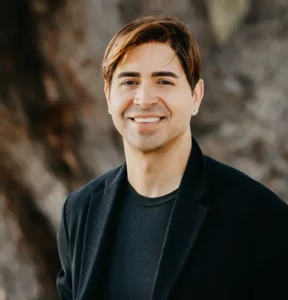If you are an LGBTQ+ individual, you may be wondering why you have a higher risk of addiction and substance use. There is no one answer to this question, as each individual’s experience is unique. However, several factors can contribute to addiction and substance use within the LGBTQ+ community. In this blog post, I will discuss the most common reasons why LGBTQ+ individuals have higher rates of addiction and substance use.
LGBTQ+ individuals often experience minority stress
Minority stress is a unique type of stress that is caused by discrimination and prejudice against a minority group. This type of stress can lead to anxiety, depression, and other mental health problems. LGBTQ+ individuals often face discrimination in many areas of their lives, including at work, school, and home. This discrimination can lead to feeling isolated and alone, which can increase the risk of addiction and substance use.
Higher Rates of Mental Health Disorders
LGBTQ+ individuals often have higher rates of mental health disorders, such as anxiety and depression. These disorders can be caused by minority stress, as well as other factors such as family rejection and social isolation. Mental health disorders can lead to addiction and substance use in order to self-medicate.
LGBTQ+ individuals often lack social support
Social support is crucial for mental health and addiction recovery. Unfortunately, LGBTQ+ individuals often lack this type of support from their families and friends. This can be due to several factors, such as family members who are not accepting of LGBTQ+ individuals, or friends who do not understand the unique challenges that LGBTQ+ people face. This lack of social support can lead to addiction and substance use as a way to cope with stress and isolation.
LGBTQ+ Individuals Often Experience Early Emotional Trauma
LGBTQ+ individuals often face early emotional trauma, which can lead to addiction and substance use. This trauma can be caused by a variety of factors, such as family rejection, bullying, and violence. These experiences can have a lasting impact on an individual’s mental health and can increase the risk for addiction and substance use.
Party Lifestyle Among LGBTQ+ Individuals
The LGBTQ+ community is often associated with a party lifestyle, which can lead to addiction and substance use. This stereotype can be harmful and damaging to LGBTQ+ individuals, as it implies that all members of the community are irresponsible and engage in risky behavior. In reality, not everyone in the LGBTQ+ community participates in this type of lifestyle, and many individuals are responsible and safe. However, the party lifestyle stereotype can still lead to addiction and substance use in some LGBTQ+ individuals.
LGBTQ+ Individuals Have Higher Rates of Poverty
LGBTQ+ individuals often experience higher rates of poverty, which can lead to addiction and substance use. This is due to several factors, such as discrimination in the workforce, lack of family support, and social isolation. Poverty can be incredibly stressful and can lead to addiction and substance use as a way to cope.
Barriers to LGBTQ+ Individuals Getting Effective Treatment
Many barriers prevent LGBTQ+ people from seeking addiction treatment. These barriers can include:
- Lack of specialized addiction treatment programs specifically for LGBTQ+ individuals
- Fear of discrimination or judgment from addiction treatment providers
- Lack of social support from family and friends during addiction treatment
- Concerns about how coming out as LGBTQ+ will affect their addiction treatment
These are just seven of the many reasons why LGBTQ+ individuals have higher rates of addiction and substance use. If you are an LGBTQ+ individual and are struggling with addiction or substance use, please know that you are not alone. There is help available, and there are addiction treatment providers who understand the unique challenges that you face.
Addiction and substance use are serious problems within the LGBTQ+ community. However, with proper treatment and support, addiction and substance use can be overcome. There are many resources available to LGBTQ+ individuals seeking addiction treatment.
If you are experiencing problems with substance use or addiction whether you would like to reduce the harm it causes or quit altogether, please reach out to me for a free consultation.




